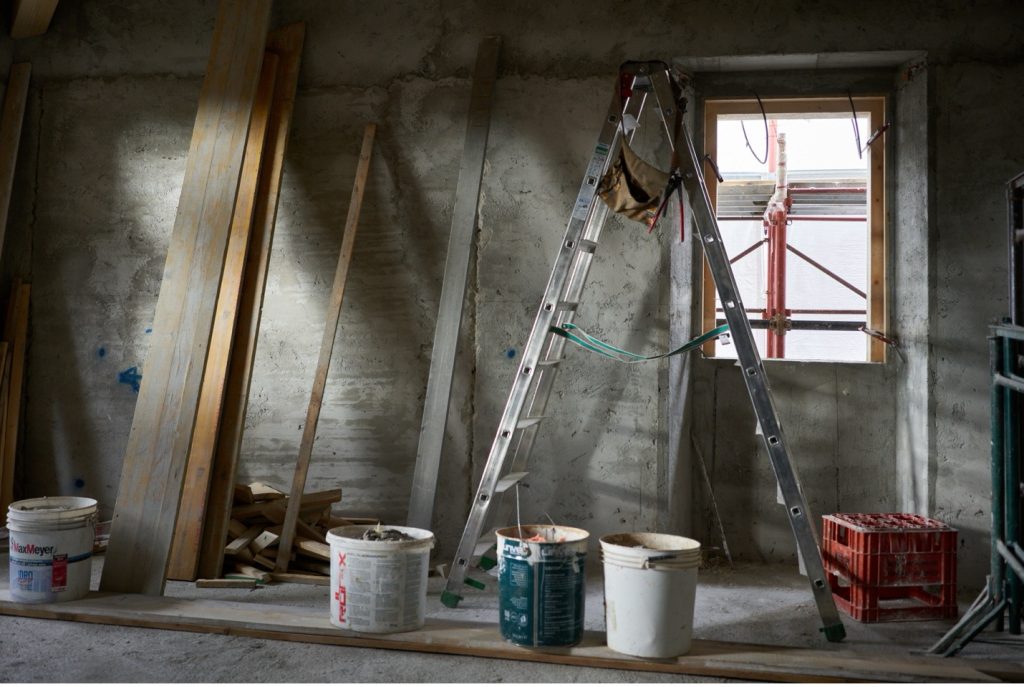By Jillian Savena, Staff Writer
Once known as one of the most affordable cities in the country, Pittsburgh’s housing landscape changed dramatically over the years.[1] Neighborhoods like Lawrenceville and East Liberty have been transformed by renovated homes, expensive apartment complexes, and rising property values.[2] Yet, just a few miles away, stretches of abandoned and deteriorating homes remain. For many Pittsburgh residents, the issue of abandoned property isn’t something distant and abstract. It’s the house down the street with boarded up windows and an overgrown lawn. These properties are tangled in back taxes, title issues, and decades of neglect that lowers everyone’s property values. In response, a growing movement has emerged to convert these forgotten properties into affordable housing and community spaces.
At the center of this effort are land banks who have stepped in to take control. In many Pittsburgh neighborhoods, vacant lots and run-down homes have been transformed to further the good of the community by becoming affordable housing and community spaces.[3] The Pittsburgh Land Bank has had success in neighborhoods, such as Hazelwood, where run-down buildings and vacant properties have now been replaced with renovated homes that are up for sale, and even a community garden.[4] Community gardens assist with access to fresh food, social cohesion, and lightening the family grocery bill.[5] The efforts of the land bank are not simply to transfer titles and to clear tax liens, but to restore access and a sense of improvement to neglected communities.
Since 2023, the land bank helped sell or prepare for sale around 150 formerly blighted properties in the city.[6] Though the term “land bank” might sound bureaucratic, Pittsburgh’s land banks play a crucial role in how the city tackles these abandoned and blighted properties. A land bank generally is a public entity that is locally created and controlled. Generally, the purpose of a land bank is to acquire, manage, and market properties that have been abandoned or otherwise blighted.[7] The Land Bank itself is created through Title 68 § 2101-21020.[8] These sections establish the power of the Land Bank and how it can be created.[9] The land bank exists to solve the problem that private markets, real estate conglomerates, and traditional government agencies often cannot.[10] When a property has been sitting for years with unpaid taxes, unknown ownership, and various code violations, the property can sit vacant and abandoned for decades.[11] The land bank steps in to clear the barriers so that properties can be reused in a manner that betters the communities.[12]
The properties themselves are acquired in multiple ways, including donation of property, sheriff sale, and treasurer’s sale.[13] Attorneys have a critical role in the process of obtaining properties. By navigating the complex histories, quiet title, deed searches and other legal hurdles, attorneys make it possible for land banks to take ownership and prepare the properties for redevelopment or community use.
A key issue that land banks face is balancing their mission of community revitalization with the constitutional property rights of owners under the Fifth Amendment.[14] Under Pennsylvania law, a municipality may establish a land bank and set forth their own policies favoring the retention of former owner-occupants in their homes whenever feasible.[15] Recently, The Supreme Court of the United States heard Pang v. Isabella County where the main issue regards whether land banks are infringing on property rights of the owners.[16] The property owner supposedly failed to pay $2,200 in taxes and fees.[17] The home was foreclosed to satisfy the unpaid taxes and sold for a significantly lower price than the property’s estimated value.[18] This case is ideal for resolving significant constitutional questions concerning the scope of owner protections in this context.[19] Therefore, this case could affect how land banks proceed in acquiring properties.[20]
Land banks are a new tool for addressing some of Pittsburgh’s most visible urban challenges. By converting these blighted properties, land banks are able to revitalize neighborhoods. Yet, their success depends on maintaining a careful balance between the public good and private rights.[21] As Pittsburgh continues to evolve, land banks and the legal team who support them will play a defining role in shaping how the city grows and reclaims spaces that were once forgotten.
[1] https://www.publicsource.org/pittsburgh-homeownership-not-really-so-affordable/
[2] Id.
[3] https://pghlandbank.org/
[4] https://triblive.com/local/after-slow-start-pittsburgh-land-bank-finds-affordable-housing-success-in-hazelwood/
[5] https://phsonline.org/for-gardeners/gardeners-blog/benefits-of-community-gardens
[6] https://triblive.com/local/after-slow-start-pittsburgh-land-bank-finds-affordable-housing-success-in-hazelwood/
[7] https://pghlandbank.org/land-bank-101/
[8]https://www.palegis.us/statutes/consolidated/viewstatute?txtType=HTM&ttl=68&div=0&chapter=21§ion=4&subsctn=0
[9] Id.
[10]Chrome-extension://efaidnbmnnnibpcajpcglclefindmkaj/https://www.thelandbank.org/downloads/ccp_take_it_to_the_bank.pdf
[11]https://www.lisc.org/our-resources/resource/addressing-problem-properties-and-their-impacts/#:~:text=Municipal%20governments%20and%20their%20community,resell%20them%20to%20responsible%20owners.
[12] Id.
[13]https://www.co.armstrong.pa.us/index.php/county-government-m/land-bank-m#:~:text=The%20land%20bank%20may%20acquire,%2C%20foreclosed%2C%20vacant%20and%20abandoned.&text=and%20transfer%20to%20new%20ownership,of%20properties%20designated%20for%20reuse.&text=Work%20in%20partnership%20with%20participating,identify%20potential%20properties%20for%20reuse.&text=Promote%20healthy%2C%20sustainable%20neighborhoods%20within%20the%20targeted%20areas%20of%20Armstrong%20County.&text=The%20Redevelopment%20Authority%20of%20the%20County%20of%20Armstrong%20(RACA)%20Land,partners%20and%20other%20community%20stakeholders
[14]https://reason.com/volokh/2025/10/04/the-supreme-court-will-hear-another-home-equity-theft-takings-case/?nab=1
[15] Id.
[16] Id.
[17] Id.
[18] Id.
[19] Id.
[20] Id.
[21]https://reason.com/volokh/2025/10/04/the-supreme-court-will-hear-another-home-equity-theft-takings-case/?nab=1
